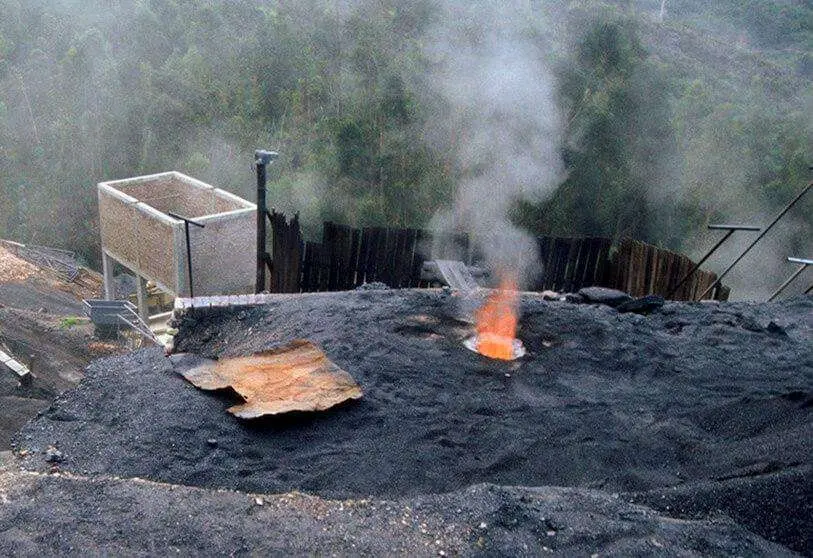Europe resuscitates coal

I don't know if the current generations, or at least mine, will manage to see economies de-fossilised, and carry a coffin with oil in it on our shoulders. It seems like a pipe dream.
Oil has brought progress, technological advances and, of course, wars, economic crises and many imbalances when the balance between supply and demand breaks down. It is also partly to blame for climate change.
The battle waged by the most industrialised economies to reduce their dependence on fossil and non-renewable energy has different timetables: decarbonisation is very much on the agenda as a primary goal with zero emission plans either in 2030 or beyond 2050.
If climate change is a generator of controversy - some deny it, others take it to the paroxysm of a new extinction - the strategies around it are equally questionable: some show unity and others don't give a damn.
The goal set above all for the countries that have decided to join forces is to prevent temperatures from rising above 1.5 degrees Celsius. A goal initially set with medium- and long-term deadlines until the SARS-CoV-2 pandemic struck and put fear in the body of a major environmental disaster with massive consequences for human beings.
Then, governments began to get more serious about advancing clean and renewable energy; then Russia's invasion of Ukraine erupted and Europe's energy dependence on Russian oil and gas has blown everything out of the water.
Above all, it has shown the long road still to be travelled to turn the pyramid of energy consumption upside down, with the base still being oil and the tip being the smallest advances in renewable energies. The dream - and desired - scenario is a thick base with renewable energies and a top with fossil fuels.
But if there is a lack of oil or gas because of a military conflict between Russia and Ukraine, coal is once again the raw material of refuge, despite all the regrets and all the environmental commitments that have been made.
The German Ministry of Economy confirmed the return to coal-fired power plants because if there is no gas, there will be coal; the last energy resource is becoming essential again, despite climate change, despite environmental commitments and despite EU agreements for 2030. The reality is that people have to eat and keep warm and companies have to meet their production commitments.
Germany is an example of a major industrialised economy that has made terrible energy management decisions for the future: first, it closed its nuclear power plants during Angela Merkel's era - after the Fukushima disaster - and second, it surrendered, energy-wise, to Russia with Nord Stream.
Ukrainian President Volodymir Zelensky's latest demand that the German government cut off its imports of Russian gas led at the time to Germany's President Frank-Walter Steinmeier being denied entry.
In the end, this pressure has paid off, as within a month Germany has reduced its dependence on Russian oil from 35 to 12%, and its dependence on gas from 55 to 35 %. Coal-fired power, however, has gone from 8 to 50%, according to the German Ministry of Economic Affairs.
Germany is not the first to admit that it will use coal temporarily until it can rebalance its energy basket (the timeframe is not even mentioned). The Netherlands, Italy and Austria will also join in the increased use of coal on pain of climate change and their green parameters with the European Union (EU).
If both oil and gas prices continue to escalate, it is not excluded that other economies will follow the return to coal, which would mean the end of years of work and commitments to achieve the goal of decarbonising the planet... or at least the countries that are the biggest emitters of harmful particles that exacerbate climate change.
The invasion and its ravages are causing both conjunctural and structural transformations in many areas. The energy market will undergo structural change with nuclear power playing a major role as a clean emitter and hopefully the return of highly polluting coal will only be temporary.
In the meantime, China is building 150 new nuclear power plants by 2035 and the United States is also betting on nuclear energy with a spectacular announcement: by 2050 it will have built 300 reactors. Both giants have their sights set on energy independence. Europe must now look to the immediate future, not to the archaic past, and close all the loopholes of its enormous energy vulnerabilities.


